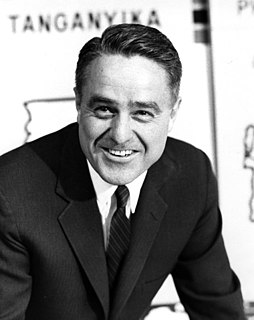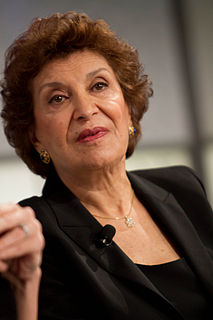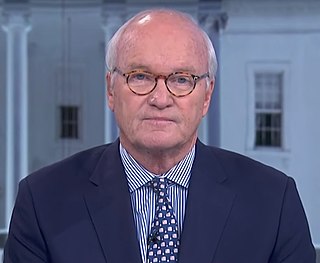A Quote by Tariq Ali
The war in Afghanistan, the first war of the twenty-first century, shows the United States doing what it wants to do, not caring about who it antagonizes, not caring about the effects on neighboring regions.
Related Quotes
The cure is care. Caring for others is the practice of peace. Caring becomes as important as curing. Caring produces the cure, not the reverse. Caring about nuclear war and its victims is the beginning of a cure for our obsession with war. Peace does not comes through strength. Quite the opposite: Strength comes through peace. The practices of peace strengthen us for every vicissitude. . . . The task is immense!
The end of the Cold War removed the immediate causes of whole destruction but not the threat contained in our knowledge. We must tame this knowledge with the ideals of justice, caring, and compassion summoned from our common human spiritual and moral heritage, if we are to live in peace and serenity in the twenty-first century.
When we talk about the environment, about creation, my thoughts turn to the first pages of the Bible, the Book of Genesis, which states that God placed man and woman on earth to cultivate and care for it. And the question comes to my mind: What does cultivating and caring for the earth mean? Are we truly cultivating and caring for creation? Or are we exploiting and neglecting it?
In the middle of the nineteenth century, the United States embarked on a new relationship with death, entering into a civil war that proved bloodier than any other conflict in American history, a war that would presage the slaughter of World War I's Western Front and the global carnage of the twentieth century.
I wanted to talk about certain things in a way that I hadn't seen them talked about. There is vast literature about caring for people romantically, about caring for children, but there's not a lot about caring for older people, eldercare. I was searching for a book that would speak to me, that wouldn't be sociological, that would offer some insight, some solace.
It is my belief that whereas the twentieth century has been a century of war and untold suffering, the twenty-first century should be one of peace and dialogue. As the continued advances in information technology make our world a truly global village, I believe there will come a time when war and armed conflict will be considered an outdated and obsolete method of settling differences among nations and communities.
The War on Drugs is a war on people, but particularly it's been a war on low-income people and a war on minorities. We know in the United States of America there is no difference in drug use between black, white and Latinos. But if you're Latino in the United States of America, you're about twice as likely to be arrested for drug use than if you're white. If you're black, you are about four times as likely to be arrested if you're African American than if you are white. This drug war has done so much to destroy, undermine, sabotage families, communities, neighborhoods, cities.







































